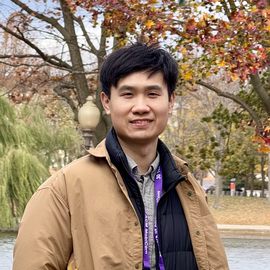Asteroid: Resource-Efficient Hybrid Pipeline Parallelism for Collaborative DNN Training on Heterogeneous Edge Devices
Shengyuan Ye,
Liekang Zeng,
Xiaowen Chu,
Guoliang Xing,
Xu Chen
November 2023
Abstract
On-device Deep Neural Network (DNN) training has been recognized as crucial for privacy-preserving machine learning at the edge. However, the intensive training workload and limited onboard computing resources pose significant challenges to the availability and efficiency of model training. While existing works address these challenges through native resource management optimization, we instead leverage our observation that edge environments usually comprise a rich set of accompanying trusted edge devices with idle resources beyond a single terminal. We propose Asteroid, a distributed edge training system that breaks the resource walls across heterogeneous edge devices for efficient model training acceleration. Asteroid introduces a novel hybrid pipeline parallelism to orchestrate distributed training, along with a judicious parallelism optimization for maximizing throughput under certain resource constraints. Furthermore, a fault-tolerant yet lightweight pipeline replay mechanism is further developed to tame the device-level dynamics for training robustness and performance stability. We implement Asteroid on heterogeneous edge devices with both vision and language models, demonstrating up to 12.2× faster training than conventional parallelism methods and 2.1× faster than state-of-the-art hybrid parallelism methods through evaluations. Furthermore, Asteroid can recover training pipeline 14× faster than baseline methods while preserving comparable throughput despite unexpected device exiting and failure.
Publication
In Annual International Conference On Mobile Computing And Networking (MobiCom), Washington, USA, 30 Sept. - 4 Oct. 2024, CCF-A, Top #1 conference in Mobile Computing and Networks. Acceptance rate = 20.8% (103/494).

Shengyuan Ye
Ph.D. student at SMCLab
He is a Ph.D. student at School of Computer Science and Engineering, Sun Yat-sen University. His research interests include Resource-efficient AI Systems and Applications with Mobile AI.

Liekang Zeng
Ph.D., Sun Yat-sen University
He obtained Ph.D. degree at School of Computer Science and Engineering, Sun Yat-sen University. His research interest lies in building edge intelligence systems with real-time responsiveness, systematic resource efficiency, and theoretical performance guarantee.

Xiaowen Chu
Professor, HKUST(GZ)
Acting Head, Data Science and Analytics Thrust
Dr. Chu is currently a Professor at the Data Science and Analytics Thrust, Information Hub of HKUST(GZ), and an Affiliate Professor in the Department of Computer Science and Engineering, HKUST. His current research interests include GPU Computing, Distributed Machine Learning, Cloud Computing, and Wireless Networks. He is especially interested in the modelling, parallel algorithm design, application optimization, and energy efficiency of GPU computing.

Guoliang Xing
Professor, IEEE Fellow, CUHK
Director, CUHK AIoT Lab
Professor Xing’s research lies at the intersection between systems, embedded AI, algorithms, and physical domains including health, autonomous driving, and environment. His research group develops new technologies at the frontier of mobile health, autonomous driving, Cyber-Physical Systems (CPS), Internet of Things (IoT), wireless networks, security and privacy.

Xu Chen
Professor and Assistant Dean, Sun Yat-sen University
Director, Institute of Advanced Networking & Computing Systems
Xu Chen is a Full Professor with Sun Yat-sen University, Director of Institute of Advanced Networking and Computing Systems (IANCS), and the Vice Director of National Engineering Research Laboratory of Digital Homes. His research interest includes edge computing and cloud computing, federated learning, cloud-native intelligent robots, distributed artificial intelligence, intelligent big data analysis, and computing power network.
 Asteroid Overview
Asteroid Overview